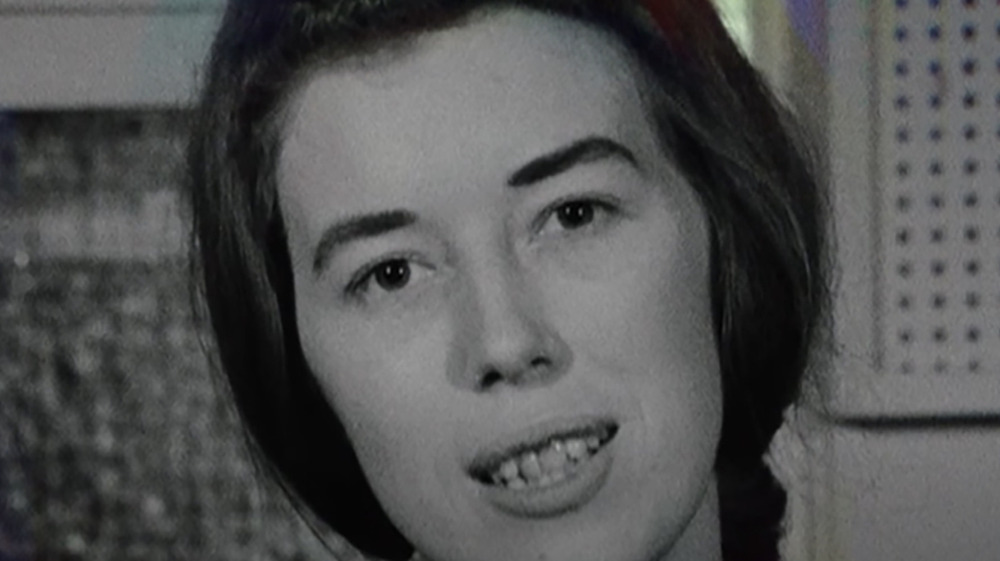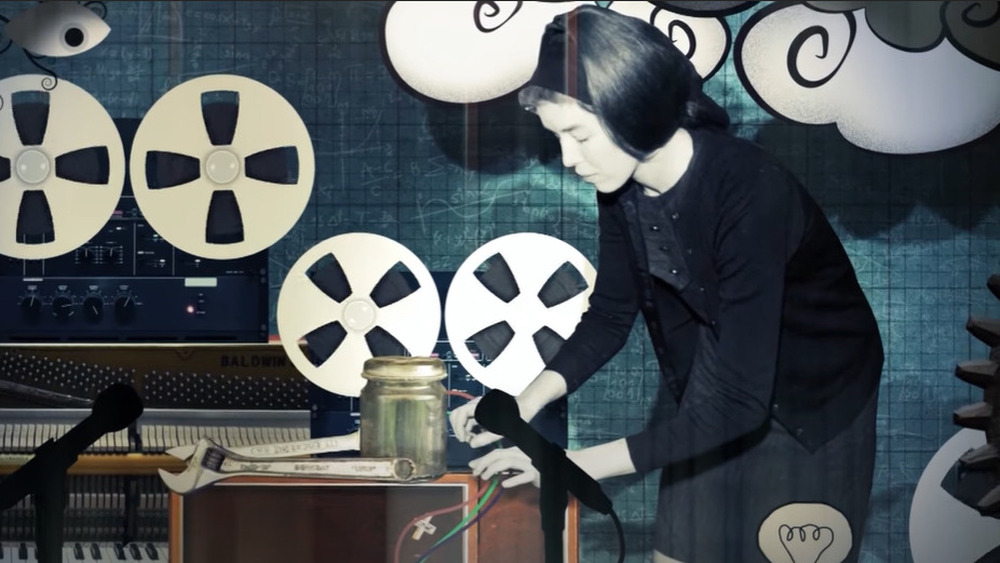The Truth About The Woman Who Transformed Electronic Music
Fans of electronic music know of artists like Aphex Twin, Brian Eno, Kraftwerk, Fatboy Slim, Gorillaz, Chemical Brothers, Nine Inch Nails, Massive Attack, Skillex, deadmau5, and Snails — just to name a small, but mighty, handful. And many composers, from Giorgio Moroder and Jan Hammer to Trent Reznor, have helped pioneer and bring electronic music to new heights in TV and film. However, these artists — all of them male, as you may have noticed — may not have been able to popularize and transform the genre if it hadn't been for a woman from Coventry, England who had a natural talent for both music and mathematics. Her name was Delia Derbyshire, and if she doesn't sound familiar, you're not alone.
In fact, if it hadn't been for her persistence, we may have never heard of her name or her work. After she graduated from university, hopeful and determined, Derbyshire applied for a recording position at Decca Records, per NPR. She was turned away, however, told by a representative that "the studio was no place for a woman." Thankfully, she didn't give up, as she would find a place to hone her skills.
Delia Derbyshire's influential work on Doctor Who
In 1960, Derbyshire would join the BBC as a trainee assistant manager, and two years later, would request to work at the BBC Radiophonic Workshop, per the BBC. Derbyshire would delve into her work by experimenting with sounds to come up with themes and cues for various programs. In 1963, Derbyshire would work with composer Ron Grainer to create the theme song for the Doctor Who TV series. It was one of the first TV themes composed of only electronic sounds. Her use of feedback and manipulation of tape helped create the arrangement and set the tone for the series. (To really get an idea of Delia Derbyshire's musical process, Absolute Genius with Dick and Dom of Da Vinci TV (posted on YouTube) went into detail and showed some really cool clips on how it's done.)
By 1973, Derbyshire left the Radiophonic Workshop and relocated to northeast Cumbria. She would settle down with her partner, Clive Blackburn, in Northampton in 1978 and would focus less on music and more on her family life.
Although Derbyshire passed away in 2001, her work is still as influential as ever and can be heard in many songs today. In time, a charity would be named in her honor, which teaches children her techniques and inspires them to make music.

